Among hundreds of Oscar-caliber short films, here are six stellar shorts that caught our attention during this year’s HollyShorts Film Fest.
The HollyShorts Film Festival is an annual Academy Award-qualifying, independent short film festival in Hollywood, California. The festival showcases the top short films produced in 40 minutes or less, and it’s a mind-blowing display of filmmaking talent across all genres, with categories including animation, live-action, documentary, music video, webisode, commercial, youth film, and digital microbudget.
The 19th annual festival occurred from August 10-20 at TLC Chinese Theatres (virtually screened on Bitpix.com).
Featuring more than 400 shorts, it’s nearly impossible to consume all the outstanding content available during this influential festival. But here are six standout shorts we had the pleasure of screening that took our breath away.
1. Monochromatic (13 min)
Set in Wood Green in 1977 London, Monochromatic is a short but devastating film about a six-year-old girl named Grace who slowly learns that the world perceives her and treats her differently simply because of the color of her skin.
It begins with the stark contrast between the carefree child, played by Kenedy McCallam-Martin, and the hate she’s oblivious to. As Grace joyfully laughs and plays outside while the sun illuminates her face and natural beauty surrounds her, the infamous words of British politician Enoch Powell from his incendiary “Rivers of Blood” speech (April 20, 1968) are heard in the background.
In a speech meant to rail against the perceived dangers of mass immigration, Powell stoked the flames of fear and racism by warning, “In this country in 15 or 20 years’ time, the black man will have the whip hand over the white man.”
The speech, and the bigotry it represents, serve as a chilling dichotomy to Grace’s innocence — a powerful reminder that the concept of othering is not innate; it’s learned bias and ignorance.
(Note: This speech is also used to potent effect in Brixton artist Ebony Jones’ “No Black in the Union Jack” about xenophobia and the rise of right-wing populism seen in both the United States and Britain)
Through quick-cut vignettes, we watch as Grace explores her neighborhood, prepares for a birthday party, plays with a school friend (a white, blonde girl), and listens to a sermon in her predominantly white church. Interspersed with her daily routine are flashes of the horror all around her: white power spray painted on a wall (she doesn’t know what it means and makes up an innocent song about it) along with the symbol NF (The National Front, a far-right fascist political party in the UK), a confrontation with a white supremacist on the street who sneers, “There ain’t no Black in the Union Jack,” the fear in her mom’s eyes when encountering racists on the street and the skinhead that shows up at her door after Grace falls down in the park, and the horrible way a white woman shuns her when Grace tells her “Peace be with you” in church while the pastor preaches about Biblical love.
Karen Bryson, making her directorial debut, handles the sensitive material with expert aplomb. She doesn’t need to force the important message or hit viewers over the head with the inherent horror. A few brief moments and the pain of watching a child’s wide eyes move from wonder to confusion to pain are all we need to feel the enormous depth of this breathtaking and heartbreaking film.
The end scene absolutely gutted me; it’s an extraordinary, must-see short.
2. Fat Girl (14 min)
This gut-punch of a short begins with shots of social media videos from a beautiful blonde influencer named Carly (India Lillie Davies). The montage ends with Carly performing a makeup tutorial while a teen girl, Lexi (Stella Stevens), is seen following along at home, trying to recreate the look.
We cut to Lexi standing awkwardly in the girl’s bathroom at school — subtlety and uncomfortably watching two popular girls gossiping, making Tik Tok videos, and talking about needing Botox while desperately hoping to avoid looking like “the before photo of Kylie Jenner” — and it’s clear she’s not entirely comfortable in her own skin.
Though we never see her bullied, she does seem to be invisible. The next scene shows her sitting alone in the cafeteria, eating carrots, and watching more videos of her idol, Carly.
The short is called Fat Girl, and you might expect to see an overweight girl struggling to fit in, perhaps even suffering ridicule. But Lexi is far from fat. Instead, she’s an attractive redhead with a very normal-looking body. And it quickly becomes apparent that it is Lexi herself who finds herself unattractive and overweight — but only when measured against the impossible beauty standards portrayed online.
It’s a world of extremes, where you either look exactly like the girls hawking beauty products on social media, or you’re completely flawed and undesirable. Lexi is not rail thin, so she must be fat. She doesn’t look like Carly, so she must be hideous.
As someone who came of age before the social media revolution, I was spared some of the intense pressure and expectations placed upon young girls growing up in today’s influencer culture. It was hard enough just contending with fashion magazines and traditional media. I can’t even imagine how difficult it must be for Generation Z.
Writer/director Makez Rikweda dishes out ample amounts of heartbreak and horror in her 14-minute vivisection of today’s brutal beauty culture and the horrendous pressure to be perfect in the face of filtered lies that make impressionable young women (and men) feel worthless.
3. SEVAP/MITZVAH (19 min)
Inspired by a true story, the deeply affecting Sevap/Mitzvah from writer/director Sabina Vajraca reveals both the best and worst of humanity.
Taking place in Sarajevo in 1941, the short begins with a Muslim woman, Zejneba, reading to her daughter, Aida. The story she’s reading is an adaptation of the Book of Esther in the Hebrew Bible and the Christian Old Testament. It’s about the beautiful Jewish wife, Esther, of the Persian king who convinces her cousin Mordecai to persuade the king to retract an order for the general annihilation of Jews throughout the empire.
Her sister-in-law, Bahra, scolds Zejneba for reading Jewish literature to her daughter and warns her what will happen if the Germans find her in possession of it or if Aida tells someone about it. Bahra urges Zejneba to dispose of the book, which she agrees to do. Zejneba goes out in her Muslim head covering, and she sees German soldiers rounding up Jews and throwing them in trucks. Glancing across the street, she sees an old childhood friend, Rifka, and she rushes to Rika’s aid, quickly shuffling her past the guards and giving her refuge at her home.
When Zejneba arrives with Rifka, her brother-in-law, Izet, is furious. He tells her they can’t risk their own lives and safety to harbor a Jew, no matter who they are. But Zejneba tells him it’s not up to him, but rather the man of the house, her husband (and Izet’s brother). She keeps Rifka safe until her husband returns. When he does, he agrees with Zejneba that they have a duty to help others, explaining, “Our lives are only as important as the people we help.”
It’s not long before Zejneba (along with the audience) receives a chilling reminder of the danger of adopting a “that’s not my problem” attitude — realizing how quickly oppression and prejudice can spread like cancer from one group of minorities to another.
In a tense and terrifying climax, Zejneba risks everything to bring Rifka’s family to safety and help her, her husband, and her kids get to a place free from persecution. It’s an act of selfless love that celebrates the triumph of the human spirit in the face of the greatest evil and adversity.
With an ending that brought me to tears and an extraordinary postscript that explained the true story of Zejneba Hardaga and Rifka Kabiljo, Sevap/Mitzvah leaves quite an impression and reminds us how connected we all are.
4. PIVOT (7 min)
With the brightly colored and whimsical Pivot, writer Ana Gusson and director Robyn Campbell have crafted a delightfully charming but emotionally impactful animated short that speaks volumes without a word of dialogue.
Like all young girls, 12-year-old Ashley struggles to find herself and carve out her own identity while battling the opinions and expectations of the well-meaning adults in her life.
The precocious pre-teen passionate about basketball is working on her footwork when her elegant mother enters the room with birthday gifts and a fancy party dress. Ashley peeks in one of the gift bags and catches sight of a sweater she’s clearly excited about. But the sight of her birthday dress does not bring such joy; far from it. As she eyes the perceived monstrosity with a mixture of gloom and dread, she catches sight of a photo from a previous birthday: wearing another beautiful dress, young Ashley appears positively forlorn. She feels like a fish out of water in these dresses that reflect her mother’s style, not her own.
As Ashley contemplates her fate, terrified to disappoint her mom, she is soon presented with something worse than that awful dress: a makeup basket.
Instead of getting ready as instructed, Ashley imagines doing battle with the dress — visualizing it transformed into a beautiful but horrible beast — and she tries to summon up the courage to let her mom know that she yearns to embrace her own identity.
A magical short with a heartwarming and uplifting ending; I loved every minute of Pivot. I also encourage you to stay through the end credits, which are a delight.
A WIA (Women in Animation) Vancouver Ace Production, Pivot appears almost entirely female-driven. And though that’s far from the only reason to watch this magnificent short, we love to see it.
5. KNIGHT OF FORTUNE (25 min)
A grieving man, Karl, has just lost his wife. He arrives at the chapel mortuary for the viewing before the burial. Left alone in a solitary room with the closed casket housing her body, he can’t bear to open it, unable to see his beloved in that state and cope with the reality of her passing.
While in the bathroom, Karl meets another grieving widower, Torben, who immediately strikes up a conversation and implores Karl, a man he’s never met before, to accompany him to his wife’s viewing. He explains he’s overcome with sorrow and doesn’t have the strength or willpower to lift the casket lid himself. Though Karl at first protests, he understands the difficulty of facing the situation alone without friends or family, so he honors the request.
To say much more about Knight of Fortune, written and directed by Lasse Lyskjær Noer (and produced in Denmark, Scandinavia), would be to ruin quite an off-kilter but enormously enthralling and heartwarming journey.
6. DEATH AND RAMEN (14 min)
Death and Ramen from writer/director Tiger Ji stars a couple of well-known comedic performers, and it seems like a perfect recipe for a silly and fun romp brimming with hijinx and hilarity. But this tasty dish satisfyingly defies expectations.
A lonely, depressed ramen chef, Timmy Lee (Bobby Lee), downs a bottle of pills, prepares his last meal (a bowl of ramen, of course), takes one final bite, and passes out into his soup. Immediately afterward, the cloaked Grim Reaper (Matt Jones, Breaking Bad) enters his apartment to usher Timmy into the afterlife.
While carrying him to his final destination, Death unceremoniously drops Timmy on his back, causing him to cry out in pain and vomit up his ramen soup. Death then explains that Timmy has passed on. Timmy isn’t supposed to be alive, but perhaps, as Death rationalizes, the combination of food mixed with the pills botched the process.
Timmy explains that he can’t die on an empty stomach and pleads with Death for one last bowl of Kimchi Ramen, which he assures Death is a culinary experience he won’t soon forget. After hearing Timmy lovingly explain the recipe and making the dish sound heavenly, a curious Death agrees to escort him to his ramen shop for one final shared meal before Timmy moves on.
A captivating short that starts out irreverent and funny takes a turn to become something far more substantial — an unexpectedly life-affirming exploration of what it means to be human.
To quote Bobby Lee’s character in the film, it’s simply divine.


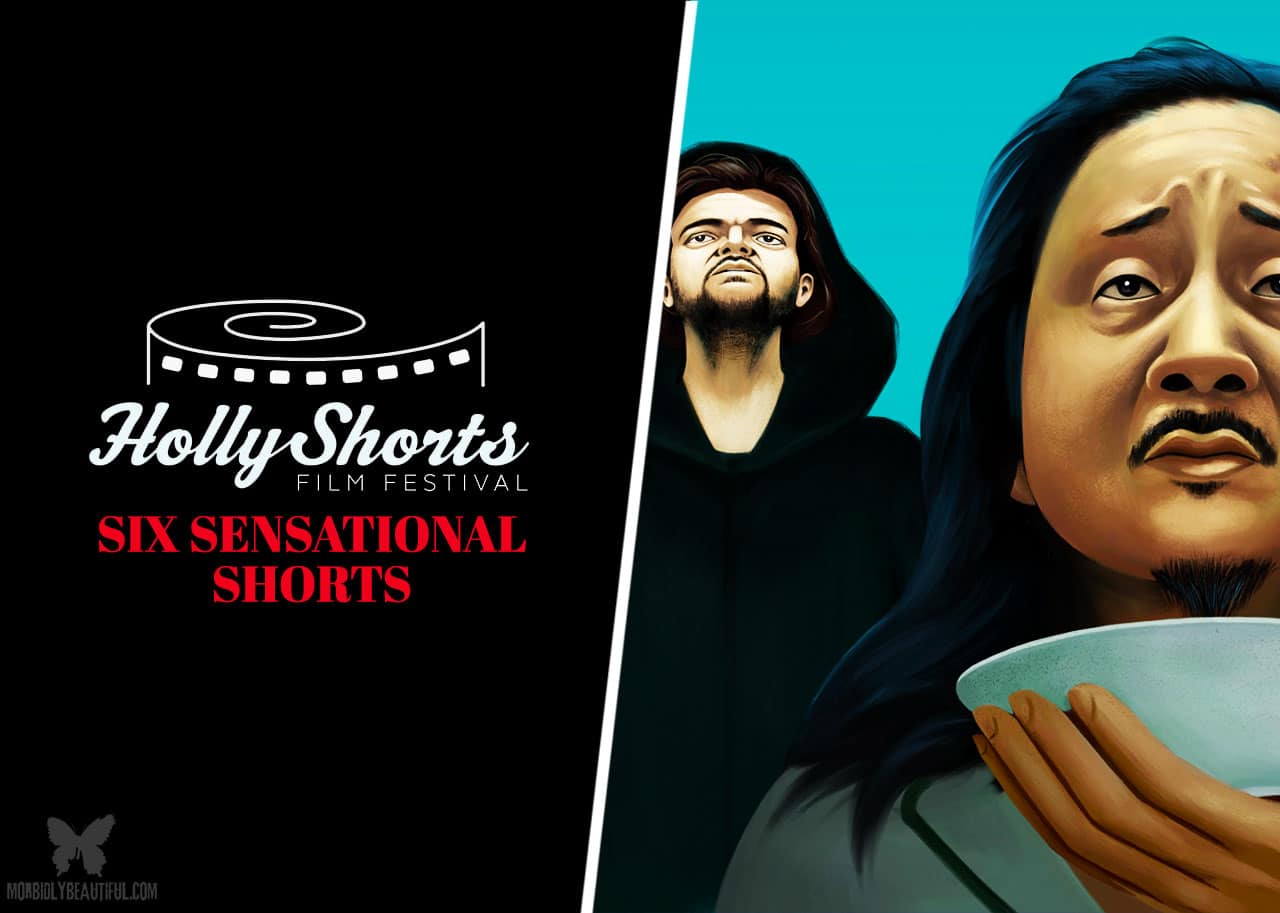
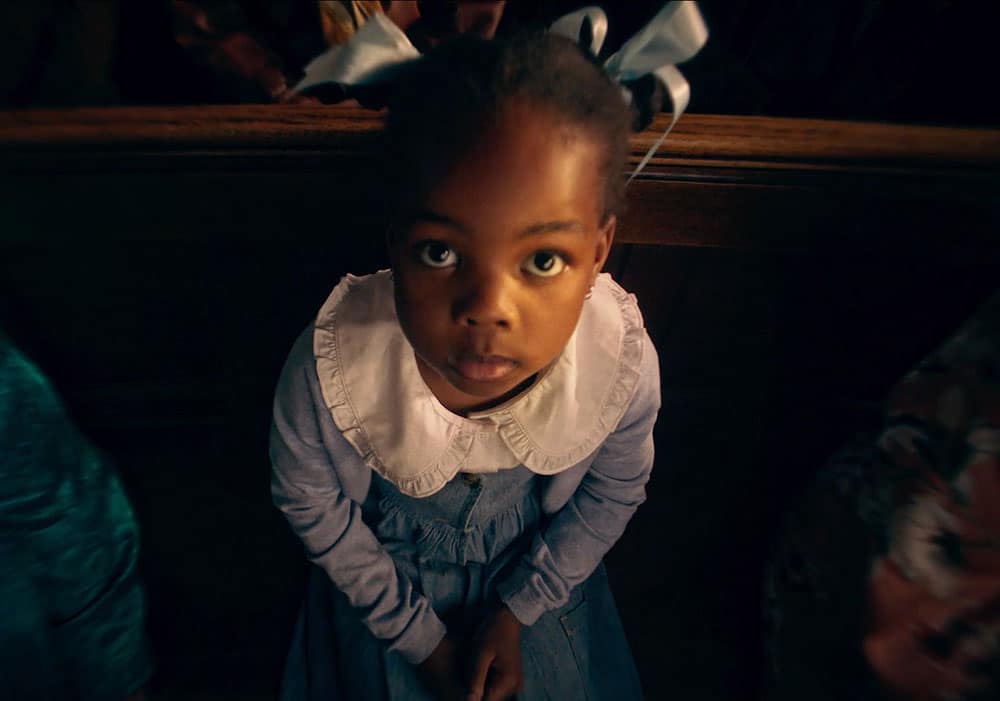
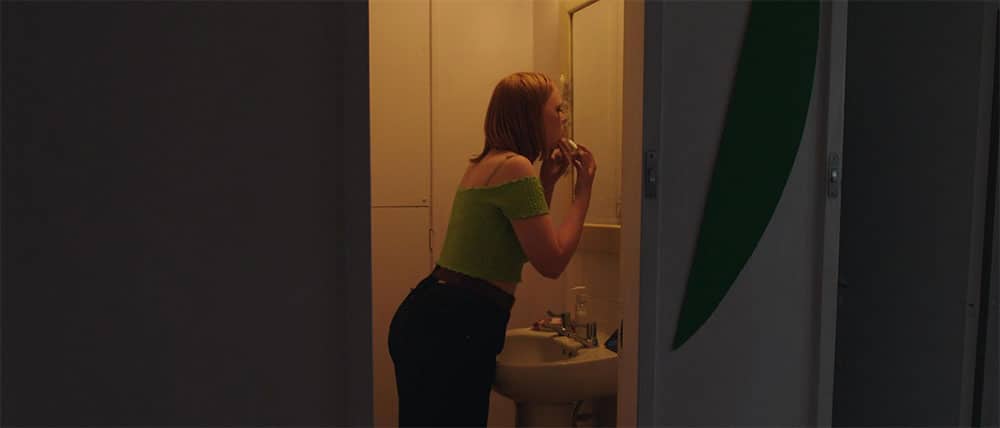
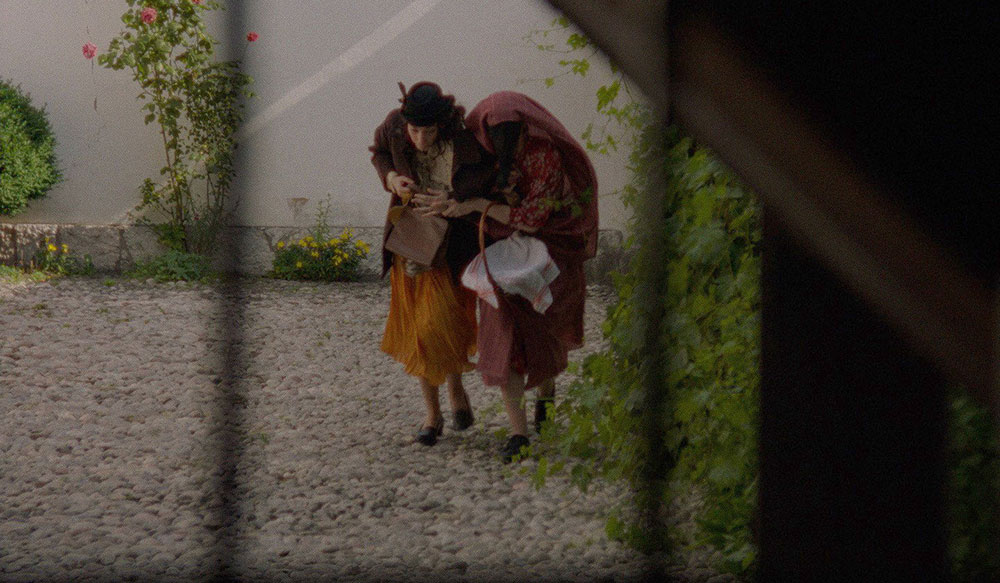
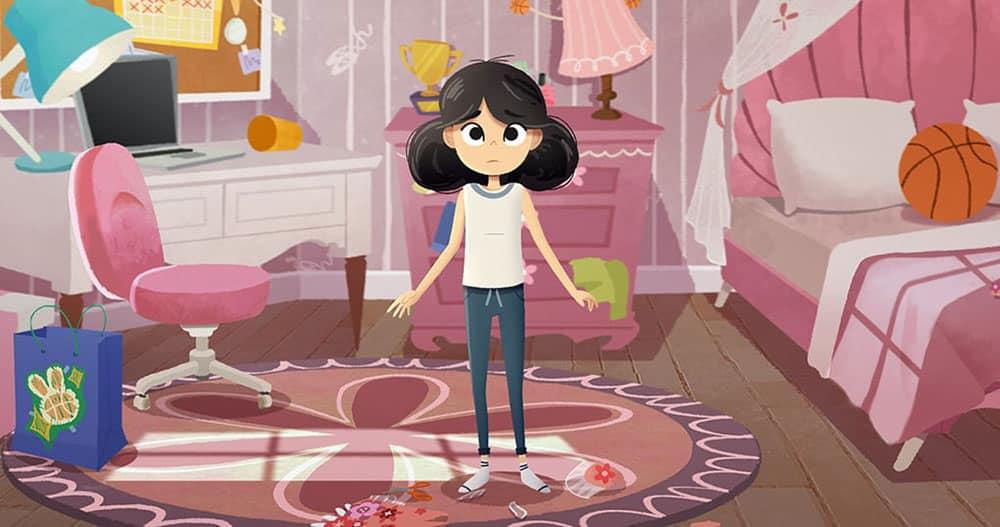
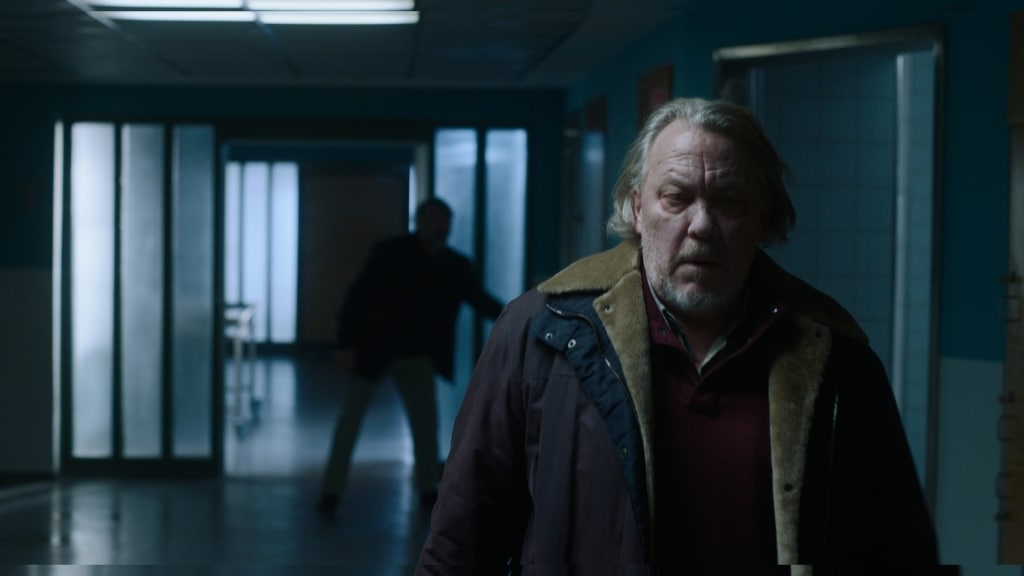

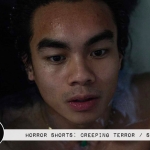

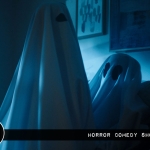
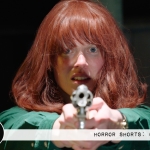





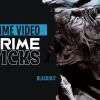


Follow Us!